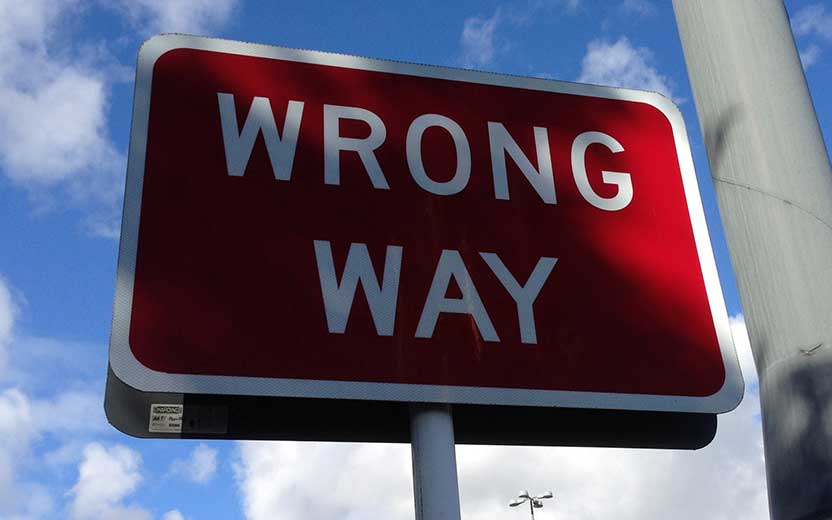By Marcus Fernandez
Perhaps the first thing to know about personal injury law is that lawyers learn about it during their first year of law school as tort law. Regardless of the name used for it, a tort or personal injury is a civil wrong, as opposed to a violation of criminal laws, that causes harm to another person or entity.
The typical remedy sought by a personal injury victim is monetary damages from the party responsible for causing the harm. State law in Florida defines and controls the rights and remedies available to someone suffering harm as a result of the negligence or intentional acts of someone else.
What follows is an introduction to personal injury law by taking a look at some of the key elements of Florida personal injury law that you should know about in case you suffer injuries in a car crash, by slipping and falling at a local store, or in any of the countless ways that accidents and injuries occur. As you read about it, remember that your best source for information about your rights when someone causes you to be injured is consultation with a Tampa personal injury attorney.
Types of personal injury claims?
There are many ways for someone to cause physical harm to another person, but the following are some of the more common incidents that can result in a personal injury claim:
- Motor vehicle accidents: There were more than 401,000 motor vehicle crashes in Florida last year with 3,760 people killed and almost 253,000 injured. Florida crash data includes accidents involving cars, trucks, and motorcycles. It also includes accidents causing injuries and fatalities to pedestrians and bicycle riders.
- Premises liability: Accidents caused by slipping or tripping and falling, improper or inadequate maintenance, and inadequate lighting are some of the types of claims in the category of premises liability. Premises liability claims happen when you are on someone else’s property and suffer an injury because of the owner’s negligent or careless conduct.
- Medical malpractice: When a health care professional or facility, including doctors, nurses and hospitals, provides treatment that is below accepted standards for such medical care, you may have the right to sue to recover damages.
- Product liability: If you are injured while using a product that is defective, you may recover damages from the manufacturer, distributor and retailer of the product.
The right to recover compensation from someone is based on their behavior being negligent, careless, or intentional. For example, if another person punches you during an argument, it is both a criminal and civil wrong. The person can be arrested and charged with committing the crime of assault. And you can sue them for damages in civil court for intentionally causing you to be harmed.
Florida is a no-fault state
If you suffer injuries in a car accident, the Florida no-fault law affects your ability to recover damages. The law requires each licensed driver to have personal injury protection as part of their insurance coverage. You must have at least $10,000 in PIP coverage.
The medical expenses and lost earnings due to injury are paid by your own insurance company. PIP coverage pays without regard to who may have been at fault in causing the crash. In fact, you cannot sue another party for injuries caused in a car accident unless you suffer a “serious injury”. A serious injury is defined as:
- Death
- Permanent injury
- Severe physical or intellectual disability
- Severe disfigurement or scarring
A Tampa personal injury attorney can help determine whether your injuries allow you to sue the at-fault party.
Comparative negligence
Sometimes, the person injured in an accident may share some of the responsibility for causing it. For example, if your car is struck by a texting motorist, the distracted motorist would appear to be at fault.
However, if the evidence shows that you were making an unlawful turn, some negligence could fall on you. The court or jurors must determine the extent to which your fault contributed to causing the crash. If a jury finds that you were 70% at fault, Florida’s comparative negligence law states that you may recover 30% of the damages that you would otherwise have been entitled to receive.
Statute of limitations
States control how long you have to file a lawsuit asserting a claim through a statute of limitations. The Florida statute of limitations for personal injury claims is four years from the date of the incident that caused the injury. A lawsuit for damages filed after the expiration of the statute of limitation is subject to dismissal by the court.
Medical malpractice claims have their own statute of limitations. The statute of limitations for these cases is two years from the date of the incident. But because medical malpractice may not be immediately apparent, the law allows two years from the date of discovery. The maximum time to make a claim is no more than four years from the incident.
Types of compensation recoverable
When you make a claim for compensation for personal injuries, you receive economic and non-economic damages. Economic damages are out-of-pocket expenses that a person asserting the claim incurred for things such as:
- Medical expenses and costs associated with anticipated future medical care and treatment.
- Lost wages and income, including reduced or lost value of future earnings.
- Cost of housekeeping services while recovering from your injuries.
Non-economic damages include pain and suffering and impaired enjoyment of life. Non-economic damages are forms of harm that cannot be as readily quantified as out-of-pocket expenses.
Learn more from a Tampa personal injury attorney
If you have been injured through the negligent behavior of someone else, you may be entitled to recover compensation. A consultation with an experienced Tampa personal injury attorney can offer advice and representation to get you the compensation you deserve.


